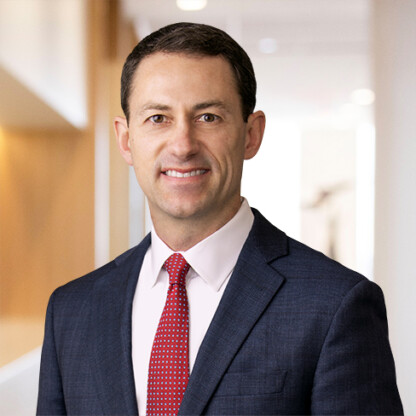Let’s [Virtually] Talk Compliance | A Foley & PYA Master Class

PYA and Foley & Lardner hosted the fourth annual “Let’s ‘Virtually’ Talk Compliance” master class on January 19 and 20. The panel of presenters included health care attorneys, certified public accountants and valuators, and health care advisors. Panelists included Foley & Lardner attorneys Kyle Faget, Olivia King, Jana Kolarik, Matthew Krueger, and Judy Waltz and PYA experts Angie Caldwell, Carol Carden, Kathy Reep, Shannon Sumner, and Valerie Rock. Below are a few major takeaways from the days’ discussions.
Please reach out to us if you have any questions.
Session #1: Fraud & Abuse: Recent Cases Settled Summary
- We expect to see COVID-19 fraud enforcement continue in 2022, and an increase in the number of matters related to the Paycheck Protection Program, Provider Relief Fund and HRSA uninsured program. Providers’ compliance work plans should include creation of a COVID-19 audit task force, and requirements to track application for and use of relief funding, and develop a plan to unwind use of COVID-19 waivers.
- DOJ continued to enforce telehealth fraud schemes in 2021, and we expect continued focus on telehealth operations, including operations related to COVID-19, given the anticipated release of OIG audits in 2022.
- Providers should review their compliance work plan for issues such as real estate, medical director time sheets, call coverage, and relationships with referral sources to ensure compliance operations.
Session #2: Compliance Considerations Related to Provider Compensation
- It is important to ensure that key opinion leaders and scientific advisory board members are performing legitimate services that correspond to a commercially reasonable business need and that they are being paid fair market value for those services.
- The Open Payments database can be a valuable tool for confirming whether your organization has a good understanding of the payments received by healthcare providers covered by the Sunshine Act.
- As telemedicine continues to be a viable mode of healthcare delivery, it is important to have compliance safeguards in place to ensure the services being provided are consistent with the standard of care and are being billed appropriately.
- Beyond clinical care, other lines of business from which a physician receives compensation should also be scrutinized, including DTC advertising and product sales (both health-related and non-health-related). The AMA Code of Medical Ethics addressing these topics underscores the influential role of “white coat” marketing that has been scrutinized in other contexts.
- It is important to know—and document—exactly what physician services are being compensated. Without such documentation, the compensation may be presumed to represent improper and potentially unlawful payments for referrals. As an example of this risk, see the OIG Special Fraud Alert: Laboratory Payments to Physicians (June 25, 2014), discussing payments covering blood specimen collection, processing, and packaging arrangements.
Session #3: Keeping Your House Clean: Data Analytics in Health Care Enforcement and Compliance
- Enforcement agencies increasingly use sophisticated data analytics to (a) identify leads for new cases, (b) guide existing investigations, and (c) prioritize the deployment of investigative resources (e.g., using data analytics to screen qui tam complaints).
- Enforcement agencies expect companies to continually improve their use of data in compliance efforts. This is especially evident in U.S. DOJ’s June 2020 update to guidance, Evaluation of Corporate Compliance Programs.
- To help your organization detect problems early and to show the maturity of your compliance program, make a deliberate effort to increase your use data in compliance efforts. This can include strengthening use of data in risk assessments, risk-based auditing, investigations, or metrics for ongoing monitoring.
- Before generating reports or metrics, have a plan for how you’ll use the information. Better not to have a report than to have negative findings that are ignored.
Session #4: No (More) Surprises Act – Whoops Here’s One!
- The No Surprises Act includes foundational federal law requirements regarding surprise billing, but also includes transparency regulations that require providers/suppliers to provide good faith estimates to uninsured and self-pay patients who are insured by group and individual plans, FEBP plans and ERISA plans.
- Good faith estimates are mandated under both the notice and consent requirements of the surprise billing rules related to nonemergency services of nonparticipating providers in participating facilities and nonparticipating facilities, as well as the transparency requirements related to uninsured and self-pay patients. They have different timeframes associated with each!
- The federal surprise billing rules do not apply to practitioners in the office setting, but the transparency requirements related to uninsured and self-pay patients do apply.
- There has been a congressional movement involving over 150 Representatives, as well as case law in various jurisdictions, demanding the revision of the No Surprises Act regulation to specify that the independent dispute resolution entity should not default to the median in-network rate and should instead consider all the factors outlined in the statute without disproportionately weighting one factor in out-of-network payment disputes between providers and health plans.
You can listen to this program in its entirety for free, and download slides from each of the session, by clicking here. Be sure to also check out the following Let’s Talk Compliance additional resources from last year’s events:
- HIPAA Breach & Penalties Webinar & Key Takeaway Blog
- Provider Relief Fund: Reporting Requirements and Compliance Concerns Webinar & Key Takeaway Blog
- The Telemedicine Cliff: Approaches for Navigating to the Other Side of the Public Health Emergency & Key Takeaway Blog
We are working on developing future Let’s Talk Compliance events, so stay tuned for dates and details!



